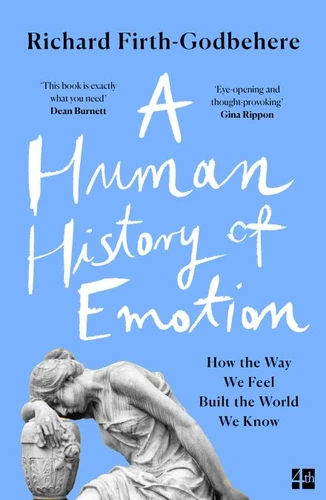A Human History of Emotion. How the Way We Feel Built the World We Know
Par :Formats :
Disponible dans votre compte client Decitre ou Furet du Nord dès validation de votre commande. Le format ePub protégé est :
- Compatible avec une lecture sur My Vivlio (smartphone, tablette, ordinateur)
- Compatible avec une lecture sur liseuses Vivlio
- Pour les liseuses autres que Vivlio, vous devez utiliser le logiciel Adobe Digital Edition. Non compatible avec la lecture sur les liseuses Kindle, Remarkable et Sony
- Non compatible avec un achat hors France métropolitaine
 , qui est-ce ?
, qui est-ce ?Notre partenaire de plateforme de lecture numérique où vous retrouverez l'ensemble de vos ebooks gratuitement
Pour en savoir plus sur nos ebooks, consultez notre aide en ligne ici
- Nombre de pages336
- FormatePub
- ISBN978-0-00-839377-9
- EAN9780008393779
- Date de parution02/11/2021
- Protection num.Adobe DRM
- Infos supplémentairesepub
- ÉditeurFourth Estate
Résumé
How have our emotions shaped the course of human history?
And how have our experience and understanding of emotions evolved with us?
We humans like to think of ourselves as rational creatures, who, as a species, have relied on calculation and intellect to survive. But many of the most important moments in our history had little to do with cold, hard facts and a lot to do with feelings. Events ranging from the origins of philosophy to the birth of the world's major religions, the fall of Rome, the Scientific Revolution, and some of the bloodiest wars that humanity has ever experienced can't be properly understood without understanding emotions.
In A Human History of Emotion, Richard Firth-Godbehere takes readers on a fascinating and wide-ranging tour of the central and often under-appreciated role emotions have played in human societies around the world and throughout history - from Ancient Greece to Gambia, Japan, the Ottoman Empire, Britain, and beyond.
Drawing on psychology, neuroscience, philosophy, art and religious history, A Human History of Emotion vividly illustrates how our understanding and experience of emotions has changed over time, and how our beliefs about feelings - and our feelings themselves - profoundly shaped us and the world we inhabit.
How have our emotions shaped the course of human history?
And how have our experience and understanding of emotions evolved with us?
We humans like to think of ourselves as rational creatures, who, as a species, have relied on calculation and intellect to survive. But many of the most important moments in our history had little to do with cold, hard facts and a lot to do with feelings. Events ranging from the origins of philosophy to the birth of the world's major religions, the fall of Rome, the Scientific Revolution, and some of the bloodiest wars that humanity has ever experienced can't be properly understood without understanding emotions.
In A Human History of Emotion, Richard Firth-Godbehere takes readers on a fascinating and wide-ranging tour of the central and often under-appreciated role emotions have played in human societies around the world and throughout history - from Ancient Greece to Gambia, Japan, the Ottoman Empire, Britain, and beyond.
Drawing on psychology, neuroscience, philosophy, art and religious history, A Human History of Emotion vividly illustrates how our understanding and experience of emotions has changed over time, and how our beliefs about feelings - and our feelings themselves - profoundly shaped us and the world we inhabit.




